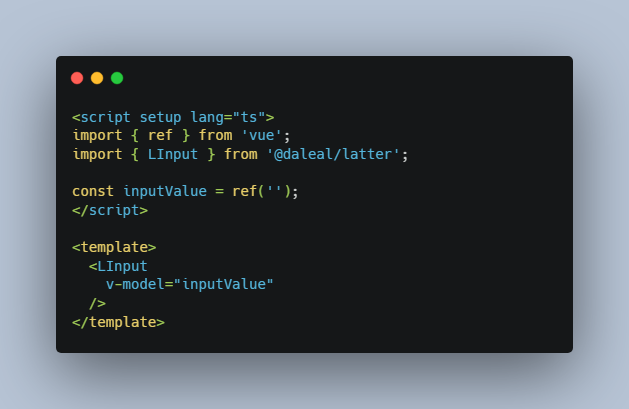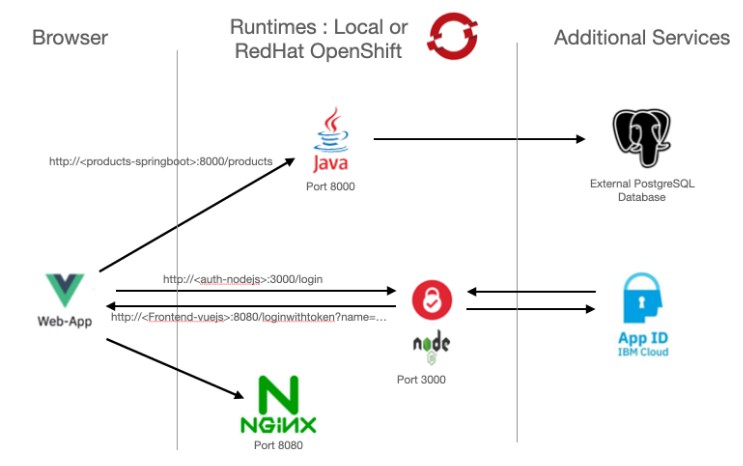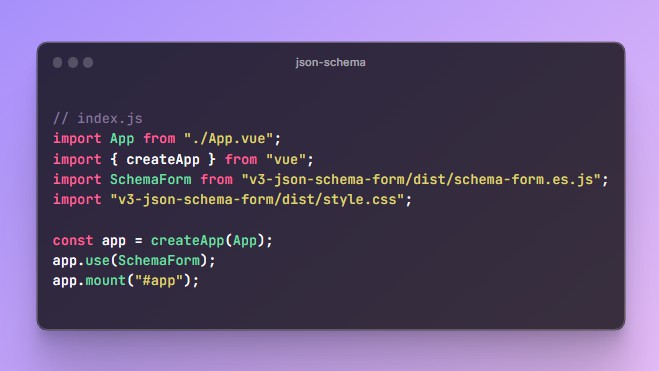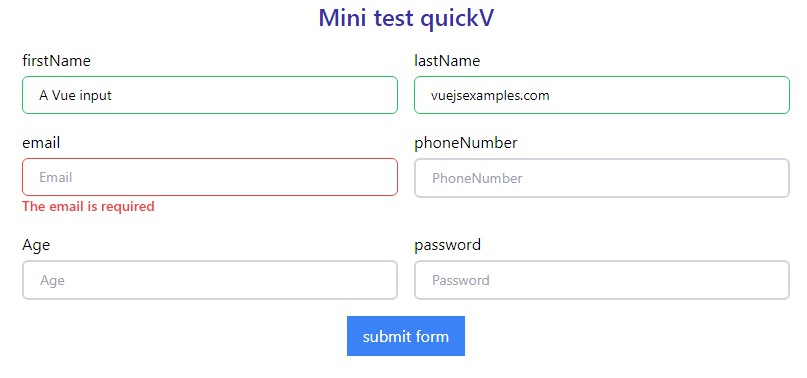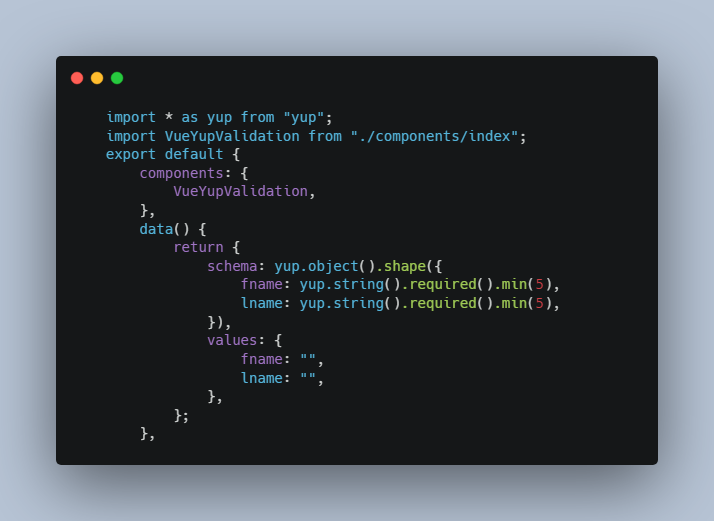Latter
The form assembling tool for people with more important things to do.
Between a framework and a tool… not the former, but the Latter.
Latter is a tool for writing and validating forms when using Vue 3. Unstyled, Latter will only take care of what needs to take care of, and not what it doesn’t.
Installation
Install using npm! (or your favourite package manager)
# Using npm
npm install @daleal/latter
# Using yarn
yarn add @daleal/latter
Quick Example
<script setup lang="ts">
import { ref } from 'vue';
import { LForm, LInput } from '@daleal/latter';
const formRef = ref<LForm | null>(null);
const email = ref('');
const description = ref('');
const emailValidations = [
(value: string) => !!value.trim() || 'This field cannot be empty',
(value: string) => value.includes('@') || 'Invalid email',
];
const descriptionValidations = [
(value: string) => !!value.trim() || 'The description cannot be empty',
];
const submit = () => {
if (formRef.value?.valid) {
// do something to submit the form
// when every input is valid
}
};
</script>
<template>
<LForm ref="formRef">
<LInput
v-model="email"
:validations="emailValidations"
/>
<LInput
v-model="description"
:validations="descriptionValidations"
/>
</LForm>
<button @click="submit">Submit</button>
</template>
Usage
Latter exports the following components to create forms:
LInputLForm
LInput
To use the LInput component, pass use a v-model on it to some reactive value:
<script setup lang="ts">
import { ref } from 'vue';
import { LInput } from '@daleal/latter';
const inputValue = ref('');
</script>
<template>
<LInput
v-model="inputValue"
/>
</template>
The inputValue variable will update as the user writes on the input.
Each LInput also contains a valid exposed attribute, which corresponds to the state of the validations for said input. You can access this attribute by setting a ref on the input component and then directly calling .valid.
<script setup lang="ts">
import { ref } from 'vue';
import { LInput } from '@daleal/latter';
const inputRef = ref<LInput | null>(null);
const email = ref('');
const emailValidations = [
(value: string) => !!value.trim() || 'This field cannot be empty',
(value: string) => value.includes('@') || 'Invalid email',
];
const submit = () => {
if (inputRef.value?.valid) {
// do something to submit the input
// when it is valid
}
};
</script>
<template>
<LInput
v-model="email"
:validations="emailValidations"
/>
<button @click="submit">Submit</button>
</template>
Notice how we declared the ref type as LInput | null. You can use the LInput type to explicitly declare the type of a template ref.
When calling inputRef.value?.valid, you will receive a boolean representing whether the validations set for the input passed or not. Please note that the validations are watched, which means that they will run when something changes (either the validations themselves or the input value), and not when calling validate. This means that you can safely call the .valid attribute multiple times in the same method without re-running the validations all over again.
There is also an error attribute on each input that can be used to display the error of said input when the validation fails.
LForm
To use the LForm component, render LInput components inside of it:
<script setup lang="ts">
import { ref } from 'vue';
import { LForm, LInput } from '@daleal/latter';
const email = ref('');
const descriptionValue = ref('');
</script>
<template>
<LForm>
<LInput v-model="email" />
<LInput v-model="descriptionValue" />
</LForm>
</template>
The LForm component also contains a valid exposed attribute, which corresponds to the state of the validations for the inputs inside of said form. You can access this attribute by setting a ref on the form component and then directly calling .valid.
<script setup lang="ts">
import { ref } from 'vue';
import { LForm, LInput } from '@daleal/latter';
const formRef = ref<LForm | null>(null);
const email = ref('');
const description = ref('');
const emailValidations = [
(value: string) => !!value.trim() || 'This field cannot be empty',
(value: string) => value.includes('@') || 'Invalid email',
];
const descriptionValidations = [
(value: string) => !!value.trim() || 'The description cannot be empty',
];
const submit = () => {
if (formRef.value?.valid) {
// do something to submit the form
// when every input is valid
}
};
</script>
<template>
<LForm ref="formRef">
<LInput
v-model="email"
:validations="emailValidations"
/>
<LInput
v-model="description"
:validations="descriptionValidations"
/>
</LForm>
<button @click="submit">Submit</button>
</template>
Notice how we declared the ref type as LForm | null. You can use the LForm type to explicitly declare the type of a template ref.
When calling formRef.value?.valid, you will receive a boolean representing whether the validations set for every input inside the form passed or not.
Development
Testing locally
To test locally, first link the library:
npm link
Then, run npm install on the dev folder and finally start the playground server!
cd dev
npm install
npm run dev
You can see the development server running at http://localhost:3000.
